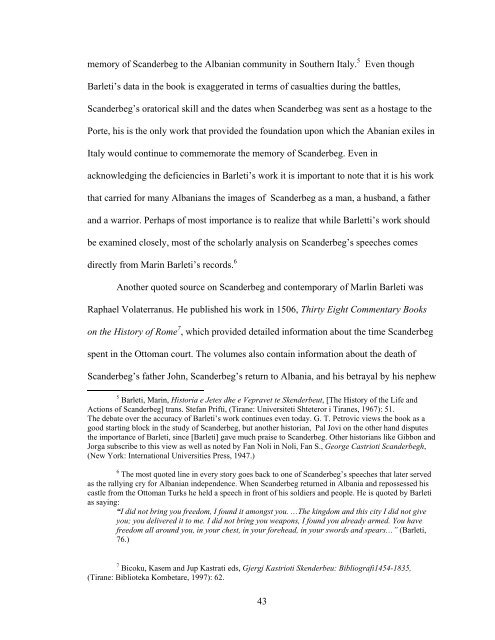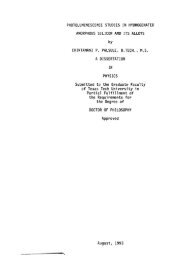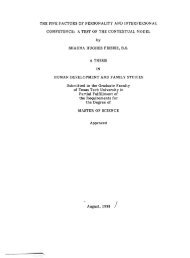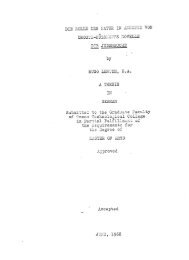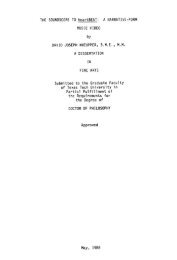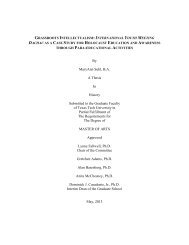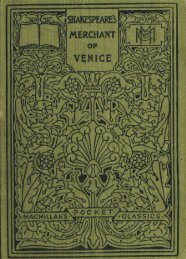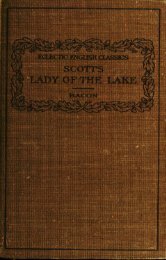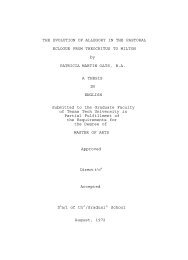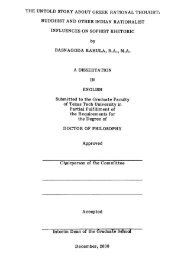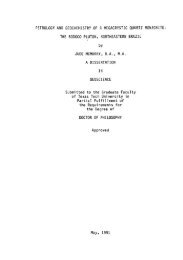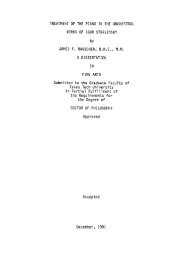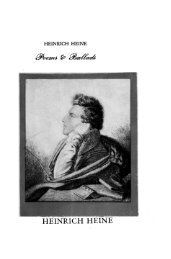Chandra Prakash Bhongir, Civil Engr, May04 - Repositories
Chandra Prakash Bhongir, Civil Engr, May04 - Repositories
Chandra Prakash Bhongir, Civil Engr, May04 - Repositories
You also want an ePaper? Increase the reach of your titles
YUMPU automatically turns print PDFs into web optimized ePapers that Google loves.
memory of Scanderbeg to the Albanian community in Southern Italy. 5 Even though<br />
Barleti’s data in the book is exaggerated in terms of casualties during the battles,<br />
Scanderbeg’s oratorical skill and the dates when Scanderbeg was sent as a hostage to the<br />
Porte, his is the only work that provided the foundation upon which the Abanian exiles in<br />
Italy would continue to commemorate the memory of Scanderbeg. Even in<br />
acknowledging the deficiencies in Barleti’s work it is important to note that it is his work<br />
that carried for many Albanians the images of Scanderbeg as a man, a husband, a father<br />
and a warrior. Perhaps of most importance is to realize that while Barletti’s work should<br />
be examined closely, most of the scholarly analysis on Scanderbeg’s speeches comes<br />
directly from Marin Barleti’s records. 6<br />
Another quoted source on Scanderbeg and contemporary of Marlin Barleti was<br />
Raphael Volaterranus. He published his work in 1506, Thirty Eight Commentary Books<br />
on the History of Rome 7 , which provided detailed information about the time Scanderbeg<br />
spent in the Ottoman court. The volumes also contain information about the death of<br />
Scanderbeg’s father John, Scanderbeg’s return to Albania, and his betrayal by his nephew<br />
5 Barleti, Marin, Historia e Jetes dhe e Vepravet te Skenderbeut, [The History of the Life and<br />
Actions of Scanderbeg] trans. Stefan Prifti, (Tirane: Universiteti Shteteror i Tiranes, 1967): 51.<br />
The debate over the accuracy of Barleti’s work continues even today. G. T. Petrovic views the book as a<br />
good starting block in the study of Scanderbeg, but another historian, Pal Jovi on the other hand disputes<br />
the importance of Barleti, since [Barleti] gave much praise to Scanderbeg. Other historians like Gibbon and<br />
Jorga subscribe to this view as well as noted by Fan Noli in Noli, Fan S., George Castrioti Scanderbegh,<br />
(New York: International Universities Press, 1947.)<br />
6 The most quoted line in every story goes back to one of Scanderbeg’s speeches that later served<br />
as the rallying cry for Albanian independence. When Scanderbeg returned in Albania and repossessed his<br />
castle from the Ottoman Turks he held a speech in front of his soldiers and people. He is quoted by Barleti<br />
as saying:<br />
“I did not bring you freedom, I found it amongst you. …The kingdom and this city I did not give<br />
you; you delivered it to me. I did not bring you weapons, I found you already armed. You have<br />
freedom all around you, in your chest, in your forehead, in your swords and spears…” (Barleti,<br />
76.)<br />
7 Bicoku, Kasem and Jup Kastrati eds, Gjergj Kastrioti Skenderbeu: Bibliografi1454-1835,<br />
(Tirane: Biblioteka Kombetare, 1997): 62.<br />
43


